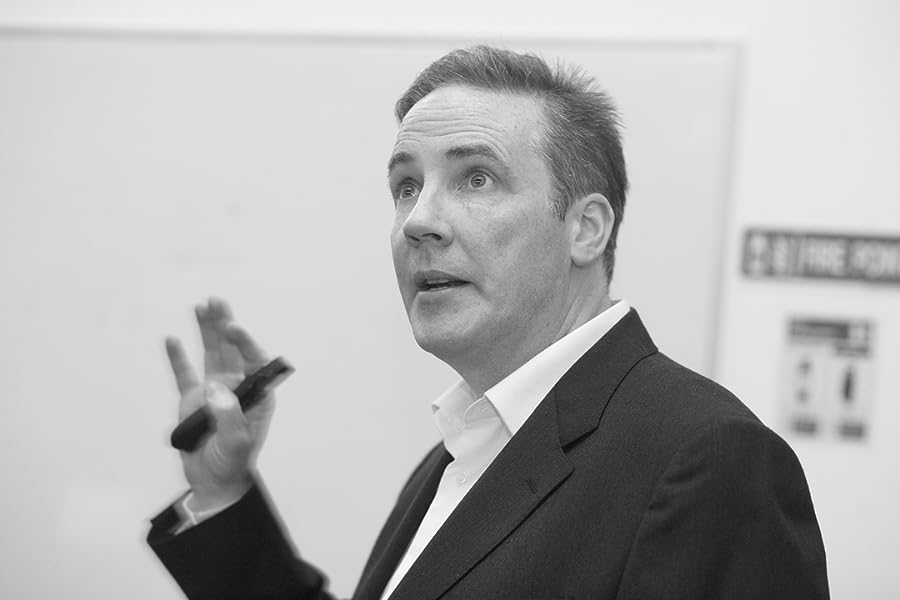Forlornly, the book’s title is misleading. With all due respect to Shane O’Mara, if my interpretation of the title stands correct, the book hardly discusses a novel science. Consequently, I find the reviews of the Irish Times and The Scientist rather humorous. The former declaimed the book to be “[d]elightfully well-written, surprisingly reflective and humorous”; the latter simply describes it as “[e]njoyable” – leaving the purported aim of the book entirely undiscussed. Such language is reflective of the reviewing process Orwell so aptly and humorously described in his Confessions of a Book Reviewer (to be found, as I hold it, in his compendium Books vs. Cigarettes). Needless to say, I found the book – though verily enjoyable – devoid of any revolutionary scientific substance.
The book summarily deals with the importance of memory and conversation – both of which reinforce and inform each other in a catoptrical manner. In effect, a society without memory, O’Mara writes “has no capacity to repair itself; it has no capacity to evolve; it has no capacity to adapt; it had no capacity to remember and learn”. (p. 47) In a similar, more developed, vein, he writes that “[i]ndividual thoughts and memories serve as the building blocks for constructing the shared reality of the group through conversation. The group’s collective understanding is shaped by the individual thoughts and memories shared and, in turn, these collective understandings shape reality for the group”. (p. 60) This reality is – again – buttressed by our singular and collective memories, which we must recall in order to tell each-other ‘stuff’ about ourselves and the world. This links to his primal, overarching idea that institutions, nations, &c., are built on human knowledge and conversation (that much is self-evident!); and we should think of them “explicitly as shared realities where we do cognitive work together”. (p. 73) These, thereafter, inform our exterior, social and – consequently, or more-so plausibly – political environment. A good illustration of the former point would be how the memories we harbour and the way we talk about ourselves to others are shaped by our external realities: indeed, conversation influences the neural interaction between the hippocampus and the amygdala, and therefore impacts memory. Evidently, this may also mean that we may confidently rely on other parties for richer memory recall.
As above-mentioned, his grande idée is that “all nations initially began as conversations – conversations where people dreamed of what might be, what resources could be theirs, what could be taken, what could be defended against others […]”. (p. 161) This much, Joyce, Nietzsche, Hegel, Herder, Popper (the list could go on ad infinitum) had already figured it out. Though the substance proceeded under to reach that conclusion is here nowise similar to that employed by the list of authors above-adduced, they nonetheless came to that exact conclusion.
To quote, inter alios, Popper:––
“[l]anguage is a social institution without which [progress] is unthinkable, since without it there can be neither [growth] and progressive tradition”. (The Poverty of Historicism: 143)
Progress, as Popper unassailably here intended to mean, connotes deliberate action towards a perceived ideal – a “what might be”. The redundancy is manifest. To further-accentuate this redundancy, though in different form, consider these three passages:
(1) “it is through a ‘communal ‘schema’ that collective memory and conversation, identity, and imagination intersect” (p. 164);
(2) “[t]he idea of nationhood can only arise because we are socialised into a common, cognitive endeavour: an endeavour bringing together memory, imagination, and conversation to construct a shared reality at scale. The consequence is to bind us cooperatively, cognitively, and effectively together, shaping our very identities”. (p. 170)
(3) “[o]ur capacity to remember together and critically, to talk about it together, has fashioned our world”. (p. 198)
The same idea is repeated thrice. The above-examples are, of course, inexhaustive of such pleonastic discourse.
Though Chapters III – IX were in sum repetitive, Chapter II imparted a few interesting factoids. In it, O’Mara described the historico-scientific development of experimental psychology: first being conducted through introspection via the careful application of Wundt’s methods. As introspection slowly fell into disfavour, it was replaced by behaviourism, and then – ultimately – brain scan analyses. This ultimate method is now exercised coevally with note-taking and daily phone mood surveys. These surveys, he writes, have allowed us to gain insight on – inter alia – what preoccupies our thoughts. He quotes a study from Roy Baumeister, the results of which interestingly stipulate that we concentrate predominantly on the “here and now” (53%).
As such, a simple ‘enjoyable read’ may be the best review this book could get.
More interesting scientific factoids are interspersed throughout the rest of the book. Chapter V includes an enjoyable digress on the process of forgetting, in which O’Mara claims that our autobiographical memories show a standard forgetting curve which stabilises at a particular level of recall – itself contingent on who, what, where, and when factors. In chapter VI, we are told how – through the process of collective deliberation and the idea that external narration informs the “self”– couples who “click” do so because they share the same worldview.
Anyhow, pace O’Mara, I found myself latching more onto these fantastic factoids than what you ostensibly deemed to be revolutionary scientific material. Material which, truthfully, could’ve been printed out on a singular page.
As such, a simple ‘enjoyable read’ may be the best review this book could get.






